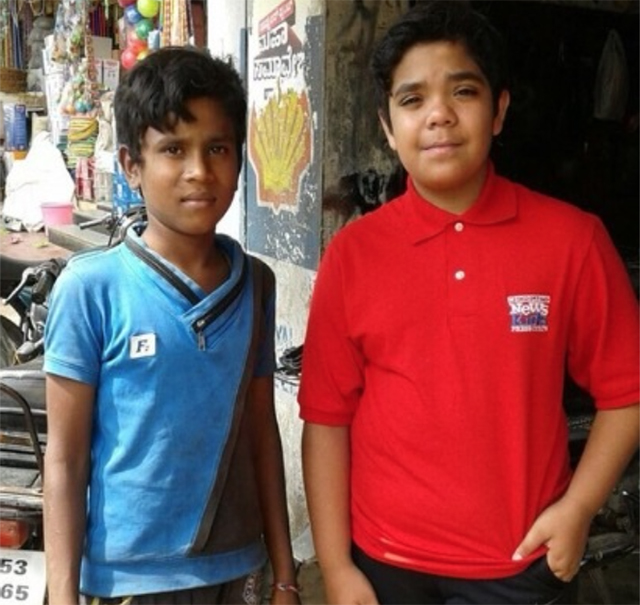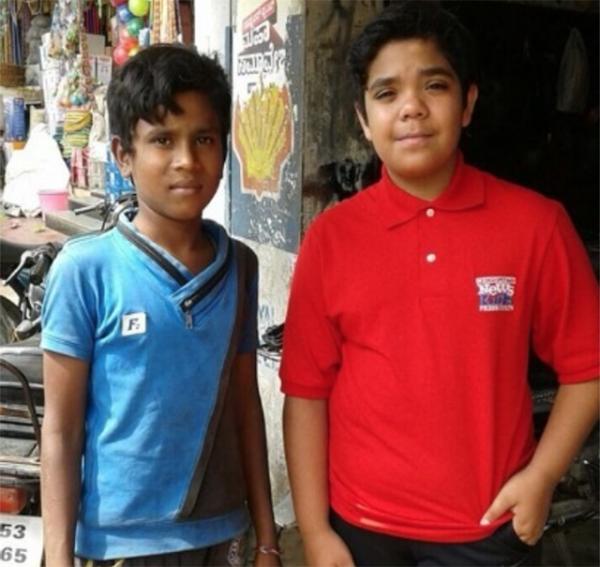KID REPORTERS’ NOTEBOOK
Child Labor in India


Rohan with Shabeer Mohammed, a child laborer in Bangalore, India
For centuries, children around the world have worked under grueling conditions. In the late 1800s and early 1900s, the United States, the United Kingdom, and other countries enacted laws to prevent the mistreatment of child workers. Employing children in dangerous jobs was forbidden.
But today, hundreds of millions of children around the world are still forced to work to support themselves and their families. Kids work in factories, mines, and other places, endangering their health and sometimes their lives. Many cannot attend school.
More than half of all child laborers live in Asia. It is common in India, where I live, to see children under the age of 15 selling trinkets by the side of the road.
After observing kids working in the city of Bangalore, I decided to investigate child labor laws in India. According to various sources, kids under the age of 14 are permitted to work in environments that are not hazardous. But shop owners and others often take advantage of vulnerable children, putting them to work for long hours and little pay. Often, laws to protect children are not enforced.
“BASIC NECESSITIES ARE MY FANTASIES”
What is it like to be a child laborer? I spoke with a boy named Javed, who began working in a motorcycle garage on the outskirts of Bangalore when he was 15. He earns 150 rupees a day, the equivalent of about $2.30. In the U.S., the minimum wage is $7.25 per hour.
The first thing I noticed about Javed was that he was extremely gaunt and appeared to be malnourished. “When I was two years old,” he explained in Hindi, “my father abandoned my mother and me, leaving us to support ourselves.”
I asked Javed, who is now 16, if his mother also works. “She is too ill to work,” he said. “I have to work to support my family.”
When asked what troubles him the most about his situation, Javed said, “I’m upset that I can’t go to school and learn. The things that you consider basic necessities are my fantasies.”
Nonetheless, Javed said that he was not angry at the man who owns the garage where he works. “I actually appreciate that he hired me and is allowing me to make an income to help my family,” Javed said.
Many adults also believe that employing children is a way to help them survive. “Child labor allows them to support their families,” said one of the men who works with Javed. “I don’t think it’s wrong at all.”
The garage owner, whose name is Farouz, acknowledged that there are instances of exploitation. “In some cases, child labor hurts children,” Farouz said. “But what we do is completely legal and helpful.”
That may be true. But it is difficult to imagine what the future holds for Javed when he is barely able to afford food and is not able to attend school.
